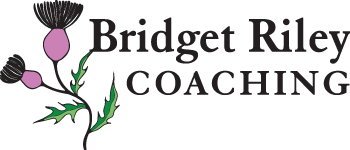
Mental health coaching and therapy are both powerful tools for personal growth and emotional wellness, but they serve different purposes.
Understanding the difference can help you choose the best support for your mental, emotional, and physical well-being.
Counseling/therapy focuses on addressing psychological or emotional issues that may be causing distress or impacting a person’s mental health.
There are key differences between health coaching and counseling/therapy, their approaches, and how they can work together to improve an individual’s overall well-being.
What Is Health Coaching?
Health coaching focuses on behavior change to promote physical and mental wellness.
A certified mental health coach or life coach helps you:
- Set actionable health goals
- Build new habits
- Improve nutrition, fitness, and stress management
- Stay accountable
Health coaches draw from tools like motivational interviewing, positive reinforcement, and self-improvement techniques to help you make sustainable changes. They don’t diagnose or treat mental health conditions, but they play a vital role in improving mental fitness and supporting work-life balance.
Health coaching is ideal for:
- Preventive health
- Managing chronic conditions like diabetes or heart disease
- Navigating life transitions or feeling stuck
- Supporting personal development and self-care
Many coaches are certified by the International Coaching Federation (ICF) and trained to uphold ethical standards in their coaching practice.
What Is Counseling or Therapy?
Counseling (also known as therapy) is a clinical approach led by licensed mental health professionals, often with a master’s degree or higher.
Therapy addresses:
- Mental health symptoms
- Emotional health challenges
- Past trauma, including post-traumatic stress disorder (PTSD)
- Mental illnesses like bipolar disorder, anxiety, or depression
Therapists use evidence-based therapy approaches such as cognitive behavioral therapy (CBT) or psychodynamic therapy. They can diagnose, treat mental health conditions, and in some cases, coordinate with psychiatrists to prescribe medication.
Therapy is especially helpful when:

- You’re looking for deep emotional support through ongoing therapy sessions
- You’re dealing with unresolved relationship issues
- You’re working through serious mental illness
- You need to explore past experiences and build coping strategies
Key Differences: Coaching vs. Therapy
| | Health Coaching | Counseling / Therapy |
|---|---|---|
| Focus | Future-oriented behavior change | Healing past trauma and mental illness |
| Goals | Physical health, motivation, self-care | Emotional processing, symptom management |
| Training | Certified coach, often ICF accredited | Licensed mental health professional |
| Methods | Coaching sessions, action plans, motivation | Talk therapy, CBT, emotional exploration |
| Clients | Generally healthy, goal-focused individuals | Those with mental health challenges |
| Scope | Cannot diagnose or treat mental health conditions | Can treat mental health, prescribe meds if needed |
In short, coaching = proactive approach to self-improvement.
Therapy = professional help for mental health problems.
When They Work Best Together
Coaching and therapy don’t compete — they complement. A coach can help with goal setting, motivation, and wellness, while a therapist helps with deep emotional healing and managing mental health conditions.
Examples of collaboration:
- A therapist helps someone cope with depression; a coach helps them reintroduce exercise and self-care routines.
- A coach notices unresolved emotional trauma and refers the client to a therapist.
Working with both provides comprehensive care for the mind and body.
Should You Choose a Mental Health Coach or a Therapist?
Ask yourself:
- Are you stuck but otherwise stable? A life coach or mental health coach may be right.
- Are you dealing with intense emotions, past trauma, or mental health issues? Consider therapy.
- Want structured goals and support around habits and wellness? Try coaching services.
- Need to explore deeper feelings or mental illness symptoms? Book a therapy session.
You don’t have to pick just one. Many people benefit from a blended support system.
How Health Coaching Supports Mental Health Treatment
In recovery or during mental health treatment, health coaching helps by:
- Promoting self-care
- Reinforcing healthy routines
- Building confidence and autonomy
- Supporting physical wellness that boosts mental resilience
Coaching is a positive change catalyst, especially when therapy is focused on serious mental illness or long-term mental health care.
When coaching clients work with both professionals, they benefit from a structured, holistic approach.
It’s Not Either/Or. It’s What Works for You
Health coaching doesn’t replace therapy. It enhances it.
Therapy doesn’t negate coaching. It deepens the journey.
Together, they support:
- Emotional health
- Life goals
- Mental health challenges
- Self development

Ready to Take the Next Step Toward Wellness?
Whether you’re ready for a certified coach or a therapy practice, the key is action.
- Want to explore mental health coaching?
- Need help navigating life transitions, building habits, or finding clarity?
Contact Bridget Riley to explore coaching that complements your mental wellness plan.
Invest in yourself. Prioritize your well-being. A healthier, more balanced life starts with a single decision.



